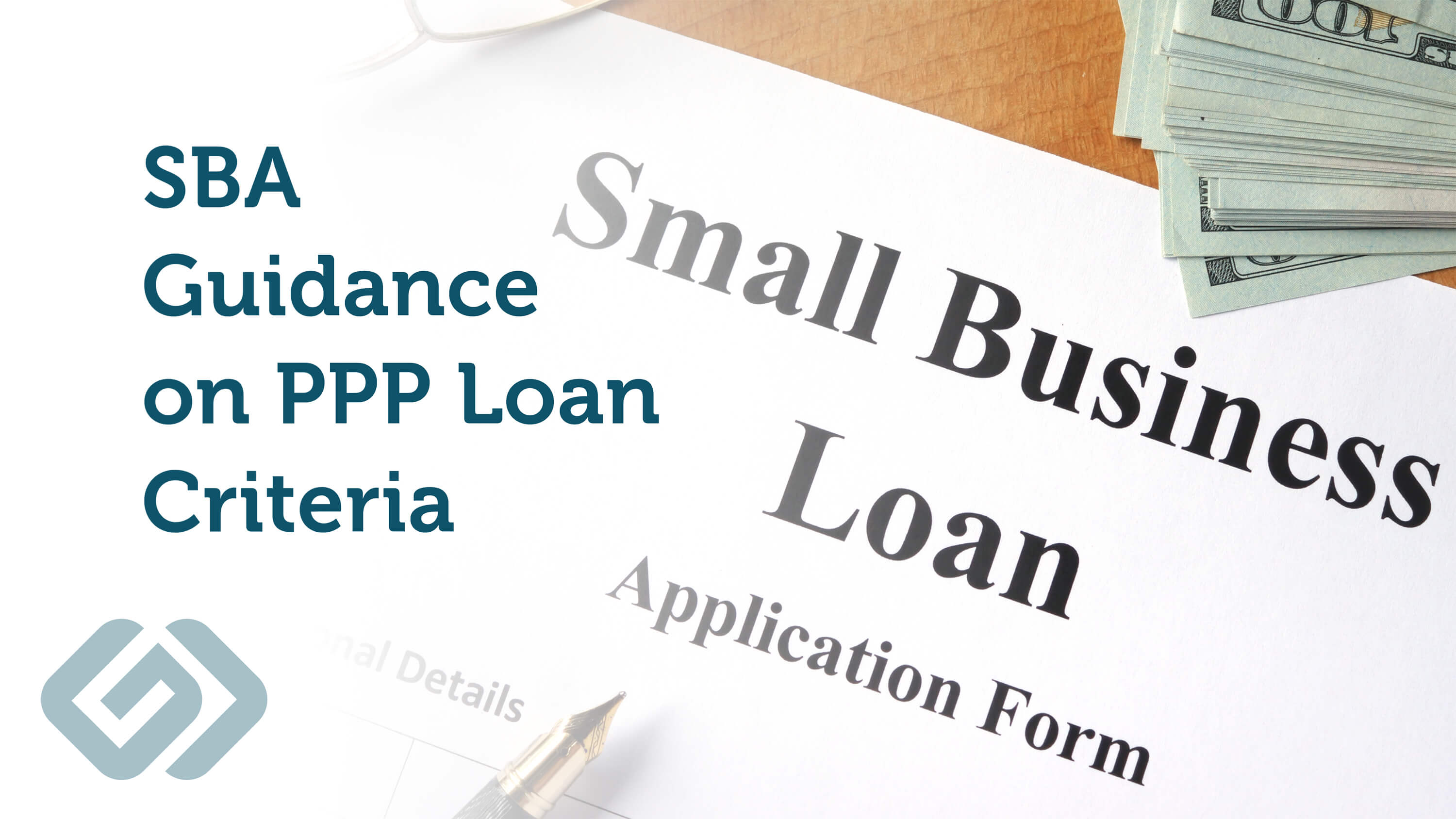SBA Issues Guidance on PPP Loan Criteria for “Economic Uncertainty”
By Martin Fox, CPA/ABV, CVA

May 13, 2020
Over the past week or so, you may have heard various reports that the SBA was going to be reviewing PPP loans to determine if borrowers made good-faith efforts in certifying that “economic uncertainty” made the loans necessary to support ongoing operations. The SBA also stated that if borrowers felt they didn’t meet the criteria, they could return the loan proceeds by May 7 as a safe harbor. That date was then changed to May 14 with the promise that the SBA would issue clarifying guidance. Those statements created a certain level of doubt and confusion for many borrowers who wondered what they should do.
Good news! The SBA issued clarification this morning in FAQ #46 stating that all loans less than $2 million will be deemed to have met the eligibility criteria. Loans greater than $2 million will still be subject to SBA review and borrowers may be required to pay back the loan balances if SBA determines that the eligibility criteria was not met. SBA will not pursue any administrative enforcement action if borrowers repay the loans after receiving notification.
The actual text of FAQ #46 has been reproduced below.
Our hope is that this information provides you some level of assurance concerning your business. We are here to help. Please contact Becky Austin, baustin@gccpas.net should you have any questions or concerns.
Question: How will SBA review borrowers’ required good-faith certification concerning the necessity of their loan request?
Answer: When submitting a PPP application, all borrowers must certify in good faith that “[c]urrent economic uncertainty makes this loan request necessary to support the ongoing operations of the Applicant.” SBA, in consultation with the Department of the Treasury, has determined that the following safe harbor will apply to SBA’s review of PPP loans with respect to this issue: Any borrower that, together with its affiliates, received PPP loans with an original principal amount of less than $2 million will be deemed to have made the required certification concerning the necessity of the loan request in good faith.
SBA has determined that this safe harbor is appropriate because borrowers with loans below this threshold are generally less likely to have had access to adequate sources of liquidity in the current economic environment than borrowers that obtained larger loans. This safe harbor will also promote economic certainty as PPP borrowers with more limited resources endeavor to retain and rehire employees. In addition, given the large volume of PPP loans, this approach will enable SBA to conserve its finite audit resources and focus its reviews on larger loans, where the compliance effort may yield higher returns.
Importantly, borrowers with loans greater than $2 million that do not satisfy this safe harbor may still have an adequate basis for making the required good-faith certification, based on their individual circumstances in light of the language of the certification and SBA guidance. SBA has previously stated that all PPP loans in excess of $2 million, and other PPP loans as appropriate, will be subject to review by SBA for compliance with program requirements set forth in the PPP Interim Final Rules and in the Borrower Application Form. If SBA determines in the course of its review that a borrower lacked an adequate basis for the required certification concerning the necessity of the loan request, SBA will seek repayment of the outstanding PPP loan balance and will inform the lender that the borrower is not eligible for loan forgiveness. If the borrower repays the loan after receiving notification from SBA, SBA will not pursue administrative enforcement or referrals to other agencies based on its determination with respect to the certification concerning necessity of the loan request. SBA’s determination concerning the certification regarding the necessity of the loan request will not affect SBA’s loan guarantee.